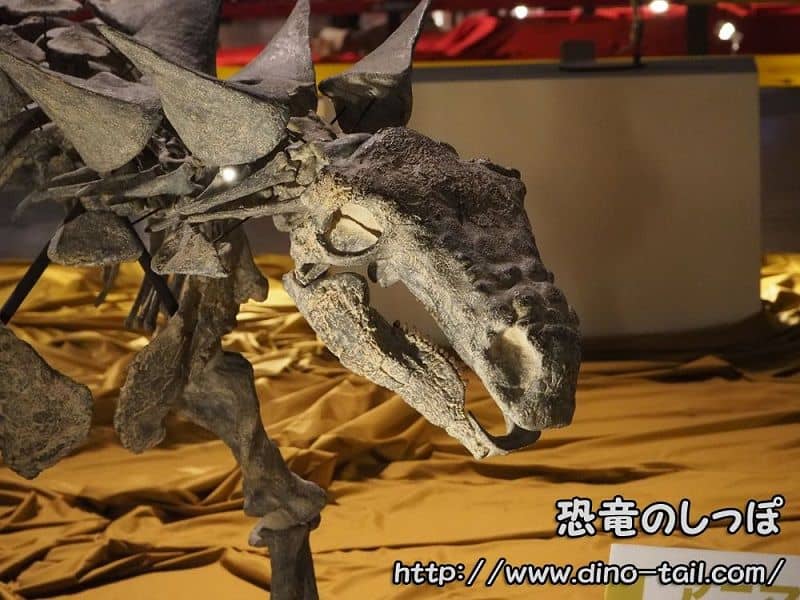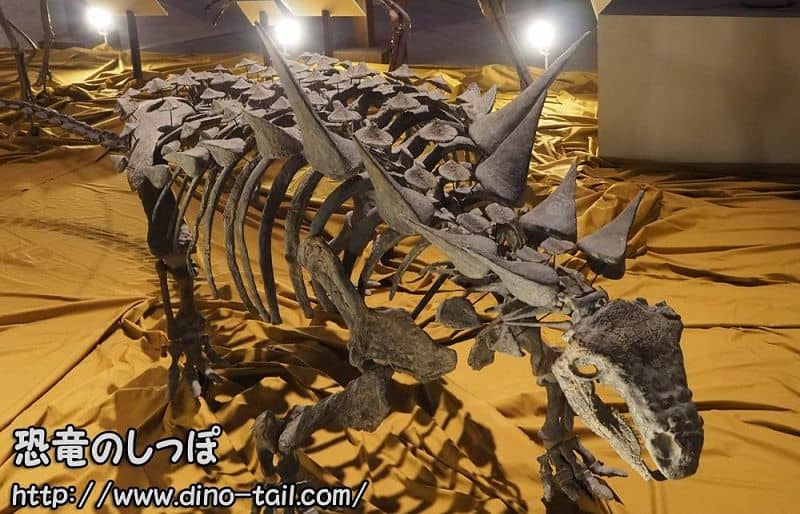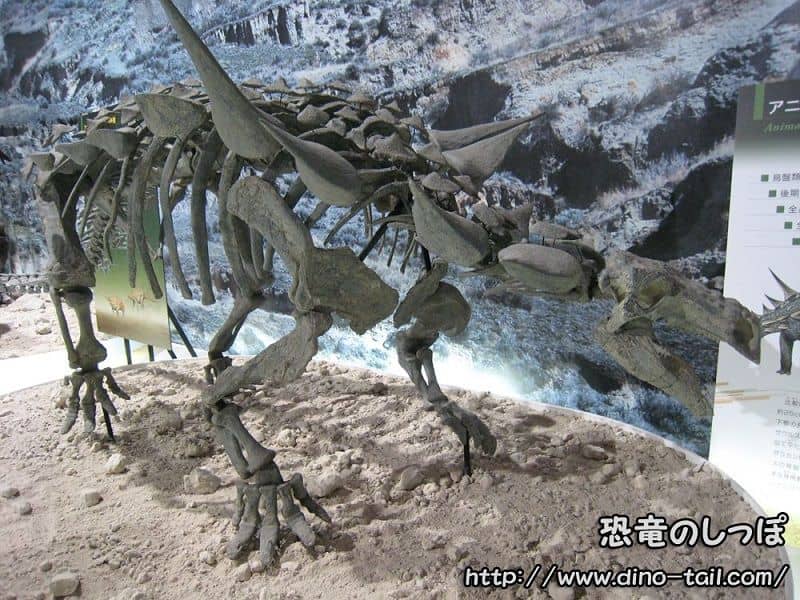About Animantarx
| Scientific Name (Genus) | Animantarx |
| Meaning of Name |
Living fortress
animans (living) [Latin] - arx (fortress) [Latin] |
| Classification | Ornithischia, Thyreophora, Nodosauridae |
| Total Length | Approx. 3m |
| Diet | Herbivorous |
| Period | Early Cretaceous (approx. 106-97 million years ago) |
| Species Name | Animantarx ramaljonesi |
| Year of Paper Publication | 1999 |
| Genus Name Publication | Carpenter, K., Kirkland, J.I., Burge, D.L., & Bird, J. (1999). Ankylosaurs (Dinosauria: Ornithischia) of the Cedar Mountain Formation, Utah... |
The "Living Fortress" Discovered by Radiation
Animantarx was a nodosaurid ankylosaur that lived in North America during the Early Cretaceous. Its name means "living fortress" in Latin, derived from the sturdy armor that covered its back. However, the most famous aspect of this dinosaur is its unique discovery method.

Animantarx is the first dinosaur ever to be discovered using "radiometric survey" with a scintillation counter. Fossils often contain radioactive elements like uranium, which emit slightly higher levels of radiation than the surrounding rock. Physicist Ramal Jones used this property to survey a vast excavation site and pinpoint the location of the buried Animantarx skeleton.
Although the discovered fossils are fragmentary, they include the back half of the skull, neck bones, and foot bones, which allow us to infer its appearance. It was relatively small for a nodosaurid, about 3 meters long. Its back was covered with bony plates (osteoderms), and large spikes lined its neck and shoulders, providing heavy armament against powerful predators of the time, such as Utahraptor.
An Enigmatic Dinosaur's Ecology

Animantarx fossils were discovered in the Cedar Mountain Formation in Utah, USA. This formation has yielded fossils of many other dinosaurs, crocodiles, turtles, and fish, suggesting that it was a lush floodplain with rivers and lakes at the time.
In this environment, Animantarx was a "low browser," feeding on low-growing plants like ferns. Since very few fossils have been found, much of its ecology remains a mystery. However, its unique discovery method is known as a groundbreaking case that expanded the possibilities of exploration techniques in paleontology.
Animantarx Fossil Gallery


